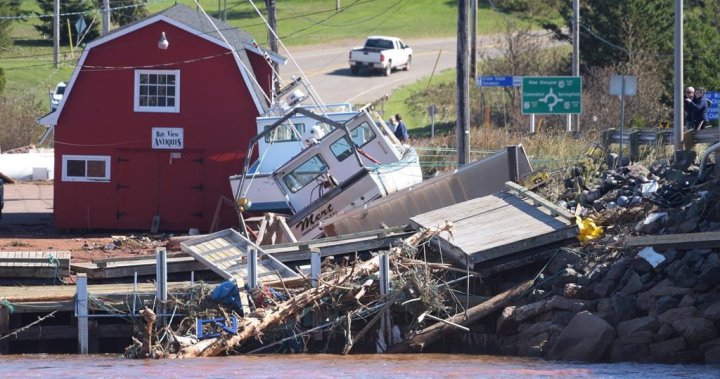
Canada’s new climate strategy to set targets for fighting wildfires, floods
Global News
Emergency Preparedness Minister Bill Blair is scheduled to release the adaptation strategy, and a plan to carry it out, in Prince Edward Island on Thursday.
Canada is set to have a new national climate adaptation strategy, outlining the government’s intention to eliminate deaths from heat and forest fires, protect homes and businesses at the highest risk of flooding and help get people forced to flee extreme weather back home faster.
Emergency Preparedness Minister Bill Blair is scheduled to release the adaptation strategy, and a plan to carry it out, in Prince Edward Island on Thursday. He will do so on behalf of Environment Minister Steven Guilbeault, who was called away on a personal matter.
The government describes the document as a blueprint to identify the hazards Canadians face, figure out ways to lower the risk, and setting targets to actually do that.
The targets will include better informing Canadians of those risks, ending all heat-related deaths, and upgrading the national disaster financial assistance program to include not just recovering from a major event, but rebuilding to withstand the next one.
The government will also publish a list of things it intends to do to help adapt, including new investments in the federal Disaster Mitigation and Adaptation Fund, and cash to fight wild fires and produce more complete flood maps for the entire country.
Before discussing the new documents, Blair and several other Liberal ministers and members of Parliament will tour some parts of P.E.I. devastated by post-tropical storm Fiona two months ago. That includes Red Head Harbour, where one wharf was demolished, one was lifted up several metres by the storm surge, and one just disappeared completely.
The storm caused an estimated $660 billion in insured damages. By 2030, the federal government says, extreme weather could cause $15 billion a year in damage.
But that figure could be lower if Canadians adapt to the climate we’re facing now, instead of continuing to live in a country built for the climate of the past.













